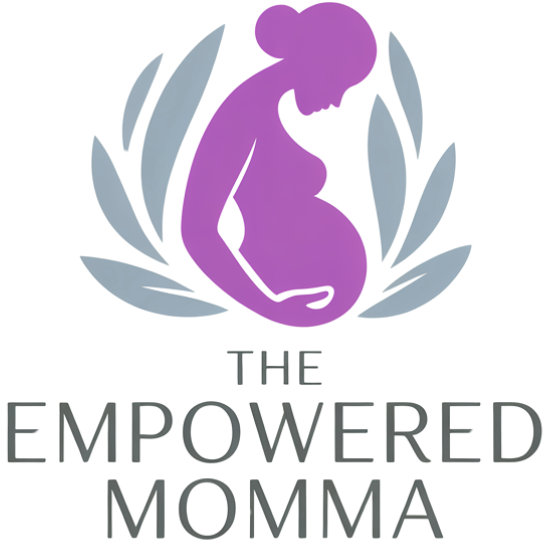Yes, you can eat pineapple while pregnant! Even though some common myths say otherwise, pineapple is usually considered a safe and healthy choice for people who are expecting. Pineapple is full of important nutrients that support both you and your growing baby. As with most foods during pregnancy, the best approach is to eat it in moderation and pay attention to how your body reacts.
Expecting parents have sometimes avoided pineapple because of stories that it might cause labor or miscarriage. However, scientific research does not support these worries. Instead, pineapple can be a sweet option that adds flavor and nutrients to your diet while you’re pregnant. If you’ve been wanting pineapple, you can relax knowing it’s a safe fruit to enjoy during this special time.

Is Pineapple Safe During Pregnancy?
Yes, pineapple is safe to eat when you’re pregnant. The fears about pineapple causing problems come from old stories and not from scientific studies. There is no strong evidence that eating regular amounts of pineapple is harmful to you or your baby. Many health experts even recommend including pineapple in a balanced diet during pregnancy.
The idea that pineapple is unsafe mostly comes from confusion about an enzyme in the fruit. But the amount of this enzyme in the part of pineapple you eat is very low and isn’t likely to cause any issues. You can feel confident enjoying pineapple as part of your meals and snacks.
Is Pineapple Okay in Every Trimester?
You can safely eat pineapple during any trimester. The rumors that pineapple is risky in early pregnancy (miscarriage) or near your due date (labor induction) are not backed by research. Pineapple offers the same health benefits the whole way through pregnancy, helping you and your baby from start to finish.
If you have morning sickness early on, pineapple’s juicy flavor might be appealing. Later in pregnancy, it can be a good snack if you’re looking for something hydrating. As always, eat it in reasonable amounts and control your portions, especially if you notice it makes your heartburn worse.
Common Misunderstandings About Pineapple in Pregnancy
Let’s clear up a few myths:
- Pineapple causes miscarriage: There is no research that links pineapple with miscarriage. This story is based on anecdotal evidence, not facts.
- Pineapple brings on labor: Some say that pineapple can cause the uterus to contract and trigger labor. This likely comes from the enzyme bromelain in the fruit. However, the amount of bromelain in the part you eat is extremely small-and you would have to eat huge amounts of pineapple to see any effect. Most studies are on animals or use concentrated extracts, not fresh fruit.
- It causes digestive upset: Pineapple is acidic and can trigger heartburn, especially if you eat a lot. This is mainly a comfort problem, not a danger to the pregnancy.

Nutritional Value and Health Benefits of Pineapple During Pregnancy
Pineapple is not just safe; it’s actually a great addition to a pregnancy diet. It provides key nutrients that help keep both you and your baby healthy. Think of it like a tasty natural supplement, full of vitamins, minerals, and fluids that your body needs during this time.
A healthy pregnancy diet includes plenty of foods rich in nutrients, and pineapple is a great fit. It’s more than a sweet snack-it helps you handle some typical pregnancy discomforts and supports your baby’s development. Here’s a breakdown of what makes pineapple so helpful:
Key Nutrients in Pineapple
| Nutrient | How It Helps in Pregnancy | Amount per 1 cup (165g) |
|---|---|---|
| Vitamin C | Boosts immunity, helps the body use iron | 78.9 mg (almost 100% of daily need) |
| Folate | Supports neural tube development in the baby | ~30 mcg |
| Iron | Prevents anemia, fights fatigue | ~0.5 mg |
| Magnesium | Supports muscles and bones, can reduce cramps | ~20 mg |
| Vitamin B6 | May help reduce morning sickness | 0.2 mg |
| Fiber | Aids digestion, helps prevent constipation | 2.3 g |
| Water Content | Keeps you hydrated | ~85% water |
How Pineapple Helps During Pregnancy
- Immune Support: The high vitamin C helps your immune system stay strong.
- Prevents Birth Defects: Folate supports your baby’s brain and spine growth.
- Fights Anemia: Iron helps prevent anemia, which is common in pregnancy.
- Reduces Muscle Cramps: Magnesium helps with muscle function and may ease leg cramps.
- Boosts Energy: Natural sugars in pineapple give you a quick energy lift.
- Supports Digestion: Fiber and enzymes ease digestion and reduce constipation.
- Hydration: Pineapple’s high water content helps you keep your fluid levels up.

Pineapple for Digestion and Hydration
Pineapple keeps you hydrated and aids digestion, both of which are very important when you’re pregnant. The fruit’s juice and fiber fight constipation and keep your digestive system working smoothly. Its high water content also helps if you don’t feel like drinking plain water, adding flavor and refreshing hydration to your diet.
The enzyme bromelain, while not present in large amounts, can help break down proteins and may further help with digestion, although the biggest benefit comes from the fiber in the fruit.
Risks and Concerns With Pineapple During Pregnancy
Pineapple is safe for most people, but there are a few things you might want to watch out for. These risks are generally small and based on misunderstandings, not proven dangers. Knowing about them can help you make good decisions about what you eat.
What Is Bromelain, and Should You Be Concerned?
Bromelain is an enzyme found in pineapple, especially in the core and stem. It breaks down proteins. Research has shown that large doses of bromelain from supplements could cause problems in animals, but you won’t get this level of bromelain from eating the soft fruit. The amount in pineapple flesh is very small, and your stomach breaks it down before it can have any significant effect. Bromelain supplements aren’t recommended in pregnancy, but the amounts in fresh pineapple flesh are considered safe.
Does Pineapple Cause Miscarriage or Labor?
This is a common myth. There’s no scientific proof that pineapple leads to miscarriage or induces labor. Even large amounts of fresh pineapple are not likely to trigger contractions. Most stories come from animal studies or involve very concentrated forms not found in the regular fruit. Labor is complex and doesn’t start simply because of eating pineapple.
Does Pineapple Cause Allergies During Pregnancy?
An allergy to pineapple is not more common during pregnancy than at other times. If you get symptoms like itching, swelling around your mouth, hives, skin rash, trouble breathing, or a runny nose after eating pineapple, stop eating it and talk to your healthcare provider. People with latex or pollen allergies sometimes react to pineapple, so be extra careful if this applies to you. Otherwise, allergies are rare, but always notice how your body responds to new foods in pregnancy.

How to Eat Pineapple Safely When Pregnant
Now that you know pineapple is safe, here are some tasty and practical ways to include it in your pregnancy meals and snacks.
How Much Pineapple Should You Eat?
- 1-2 cups of fresh pineapple per day is a reasonable serving for pregnant people.
- This gives you lots of vitamins without too much acid or sugar.
- Daily fruit and vegetable needs are around 4.5 to 5 cups in total, so pineapple can be part of that amount.
Easy Ways to Eat Pineapple During Pregnancy
- Fresh Chunks: Simply cut up fresh pineapple and eat as a snack.
- Smoothies: Blend pineapple with bananas, mangoes, or yogurt for a filling drink.
- Fruit Salad: Mix pineapple with berries, kiwi, or oranges for a colorful dish.
- Grilled: Lightly grill pineapple for a sweet and smoky side or dessert.
- In Meals: Add pineapple to salads, salsas, stir-fries, or even pizza for extra flavor.
- Frozen Treats: Make simple ice pops or sorbet from pureed pineapple for a cool snack.

Always wash the outside of fresh pineapple well before cutting and eating it.
Should You Eat the Core?
The core of the pineapple does have more bromelain than the flesh. While the risk is still low, most experts say to skip eating the core just to be on the safe side. Stick to the juicy soft fruit.
Is Pineapple Juice Okay?
You can drink pineapple juice while pregnant, as long as you don’t have gestational diabetes or get digestive issues from juice. Pick 100% juice with no added sugar. Remember, juicing removes fiber, and juices may be high in natural sugar. Try not to drink too much and, if possible, make juice at home to control what’s in it.
Tips and Precautions for Eating Pineapple While Pregnant
For most people, pineapple is a great addition to a pregnancy diet. Still, here are a few simple tips to help you avoid any issues:
- Allergies: If you know you’re allergic to pineapple, don’t eat it. Watch for signs like mouth itchiness or rashes.
- Gestational Diabetes: Keep pineapple servings small if you need to monitor your blood sugar.
- Heartburn or Reflux: Pineapple can make these worse. Limit or skip it if you notice symptoms.
- Stomach Upset: Eating lots of pineapple at once may cause bloating or diarrhea. Reduce your serving size if this happens.
Choosing and Preparing Pineapple Safely
- Pick a Good Pineapple: Choose fruit that smells sweet at the base, is heavy, and has firm, green leaves.
- Wash Thoroughly: Rinse the outside under running water before cutting to remove dirt or germs.
- Clean Utensils: Use clean hands, knives, and cutting surfaces.
- Refrigerate Once Cut: Store cut pineapple in a covered container in the refrigerator and eat within a few days.
- Avoid Added Sugar: If buying canned pineapple, choose options packed in their own juice, not in syrup.
Summary: Pineapple and Pregnancy
To wrap it up: Pineapple is generally safe and good for people who are pregnant. The myths about it causing miscarriage or bringing on labor aren’t supported by science. Pineapple provides vitamin C, folate, fiber, and water, supporting your health and your baby’s growth. Just remember to eat it in moderate amounts, watch for any reactions, and prepare it safely. If you have certain conditions like diabetes or allergies, talk to your doctor. In most cases, pineapple can be a delicious and healthy part of your meals while you’re pregnant.

